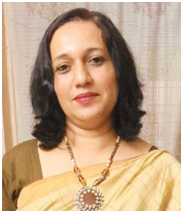
Creating Zero Discharge Communities (ZDC), the Prerequisite to Sustainable Development

Dr Francin Pinto – Ph.D Sustainable Development
Founder, Garbage Concern Welfare Society
Sustainable Development is an organizing principle for meeting human developmental goals while ensuring the sustaining ability of ecosystems to provide natural resources, in a balanced manner for economic growth and services, as well as their conservation and inclusive progress of all speices within thebiosphere.
Each ecosystem, institution or community is a collective group, where the use of natural resources will create various streams of waste such as organic waste ( biodegradable-food waste, cotton, dung, yard waste), inorganic- plastics, metal, glass, non-recyclable waste, gaseous waste, liquid waste ( grey water, sewage, effluents), reject waste like debris, concrete wasteetc.
If wastes are not treated or systematically recycled, the accumulation of waste becomes a bio-hazard to the community at large. The rate at which waste is created on our planet currently requires 2 times more space to handle it. Moreover the maximum cost is spent just on collection, transfer and landfilling, rather than in recovery of the value in the waste.
According to estimates made by World Resource Institute, the global waste management market size was valued at $1,612.0 billion in 2020, and is expected to reach $2,483.0 billion by 2030. Also if waste was managed at source, it will generate an additional $3000 billion worth of resources. Hence for Sustainable Development to become a reality, minimizing waste by restructuring the usage process and treatment of waste at source before discharge will add value through resource recovery and simultaneously reduce the overall impact on the ecosystem.
To enable Zero Discharge Communities every institution or community needs to have a Standard Operating Process (SOP) for on-site waste management. The following steps become imperative to enable ZDC:-
- Waste Audit - which identifies, quantifies and qualifies the various types of waste produced, with details of frequency of production and current process of handling and discharge. In case of hazardous waste, the concentration and toxicity is analyzed by a certifiedbody.ThefindingsaresubmittedinaWaste InventorizationReportwith suggestions to minimize the waste and with potential treatment strategy for safe disposable and recovery of resources in the waste.
- Awareness of the stakeholders to minimize the waste and adopt the treatment strategy for safe disposable and recovery of resources in thewaste.
- System Adoption that creates the infrastructure, the team and enables day to day processing that minimizes the waste and operates the treatment facility for safe disposable and recovery of resources in thewaste.
- Monitoring and Control which studies the impact after adopting of the systems which can then be shared as best practices with other communities to multiply the impact.

Creating Zero Discharge Communities reduces pollution of the ecosystem by 85%, with recovery of new resources from waste by 65%. Thus the cost for waste management in the form of collection, transportation and land for dumping gets reduced, leading to exponential economic benefits. Also it reduces the use of petroleum fuel and pollution of eco-sensitive regions, creating local action with global change. The livelihoods created within the ZDC for the marginalized, further adds economic value and builds a sustainable framework for a holistic progressive community.
Since 2005 Garbage Concern Welfare Society (GCWS) have worked to create Zero Discharge Communities across India and has been instrumental in diverting over 25 Million tonnes of waste from Eco sensitive locations. Its current daily operation diverts 122 tonnes of waste. The team has trained over 5000+ marginalised to become waste managers, providing them with dignified livelihood in the waste management sector.
The journey of thousand miles begins with a single step. The only difference between a problem and solution is inaction. To create Zero Discharge Communities please connect with us @9820702096 or email to [email protected]. Together we can make the right difference. Act Now.


